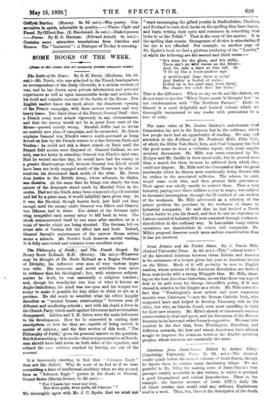The main value of Mr. Justice Sankey's unfortunate Coal Commission
lay not in the Reports but in the evidence, which few people have had an opportunity of reading. We may call attention to the Evidence of Mr. Frederick Mills, Ebbw Vale, of which the Ebbw Vale Steel, Iron, and Coal Company has had the good sense to issue a verbatim report, with some supple- mentary documents. Mr. Mills was cross-examined by Mr. Hodges and Mr. Smillie in their usual style, but he proved more than a match for them because he adduced facts which they could not dispute. Mr. Mills told the Commission that the great steelworks which he directs were continually being thrown idle by strikes in the associated collieries. The miners, he said, would cease work first, and then present their grievances. Their agent was wholly unable to control them. Thus a vast Industry, paying over three millions a year in wages, was subject to incessant interruption, through the ill conduct of one section of the workmen. Mr. Mills advocated as a solution of the labour problem the purchase by the workmen of shares in Industrial oompa.niar. He said that he had invited a Trade Union leader to join his Board, and that he saw no objection to Labour control of industry if it were exercised through workmen- shareholders in the ordinary way. In Lancashire many cotton operatives are shareholders in cotton mill companies. Mr. Mills's proposal deserves much more serious consideration than It has yet received.










































 Previous page
Previous page